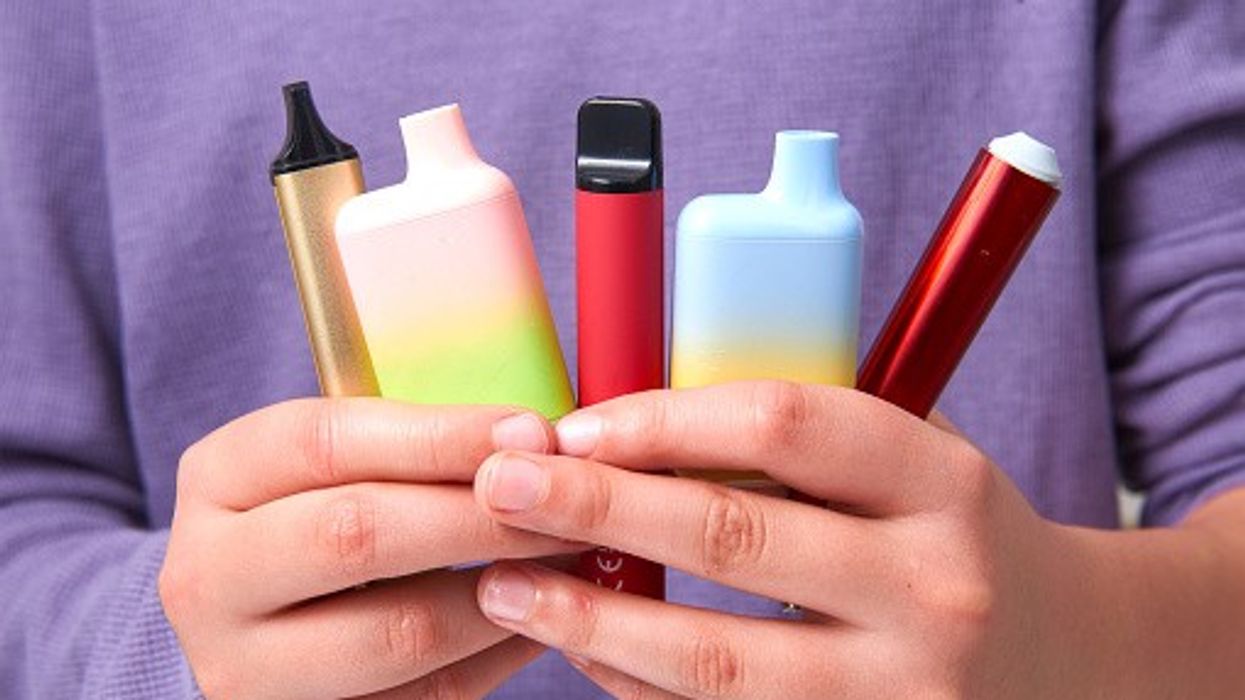The UK government has announced a £62 million research project to investigate the long-term health effects of vaping on young people, alongside wider influences on adolescent health and wellbeing.
While vaping is considered less harmful than smoking and can aid adult smokers in quitting, youth vaping has skyrocketed in recent years, with a quarter of 11 to 15-year-olds having tried it, the Department of Health and Social Care (DHSC) noted in a release.
This research supports the government’s major plans to tackle youth vaping and create a smoke free generation, including the Tobacco and Vapes Bill, which is currently making its way through Parliament.
This study is one of three sets of research being commissioned by the government, alongside the launch of England’s first ever public health campaign to educate children on vaping harms.
Funded by UK Research and Innovation (UKRI), the adolescent health study will track 100,000 young people aged 8-18 years over a decade, collecting data on behaviour, biology and health records.
Ashley Dalton, minister for public health and prevention, emphasised the importance of finding clear evidence on the long-term health harms of vaping, especially for young people.
“This landmark series of studies, combined with our first nationwide youth vaping campaign, will help drive evidence-based, decisive action to protect our children’s future,” she said.
She reaffirmed the government’s commitment to its Plan for Change, which aims to build healthier lives and save NHS through bold preventative measures, such as the Tobacco and Vapes Bill.
Prof Lucy Chappell, NIHR CEO and chief scientific adviser to DHSC, underscored the importance of investing in such research to ensure young people, parents, and policymakers have the knowledge they need to make informed decisions and safeguard long-term health.
Sarah Sleet, chief executive at Asthma + Lung UK, expressed concern over the “extremely worrying” number of young non-smokers taking up vaping.
“The long-term impact of vaping on the lungs isn’t yet known, so research into its effect on young people, is really important,” she said.
Prof Lucy noted that vaping can cause inflammation in the airways, trigger asthma and put developing lungs at risk, while exposure to nicotine – also contained in vapes – can damage developing brains.
“This is why young people should be stopped from taking up vaping in the first place,” she stated.
She welcomed upcoming legislation as a significant step in tackling youth vaping, particularly the ban on cheap disposable vapes.
“Alongside this, arming young people with the facts about the dangers of vaping and how it affects their health with campaigns like Love Your Lungs, is absolutely vital,” she added.
A second research project, funded by the National Institute of Health and Care Research (NIHR), will enable University College London (UCL) to provide annual updates on the latest vaping research from both UK and international sources.
Meanwhile, the London School of Hygiene and Tropical Medicine (LSHTM) will conduct the most extensive analysis of youth vaping studies to date, also funded by the NIHR.
Additionally, the government is launching its first-ever nationwide campaign, Love Your Lungs, to educate young people on the hidden health risks of vaping and nicotine addiction.
The Tobacco and Vapes Bill aims to curb youth vaping by limiting flavours, packaging, and displays deliberately designed to appeal to children.
Under separate environmental legislation, disposable vapes will be banned from 1 June 2025, further reducing their accessibility and appeal to young people.













